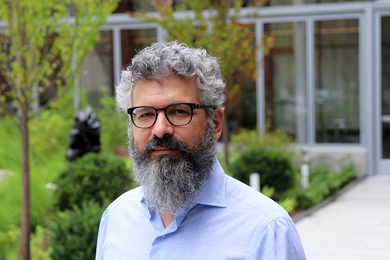Three summers ago, Christopher Love went to Italy for an international experience to complement the undergraduate research he’d been doing at MIT.
Working at Enel, the second-largest power company in Europe, he helped design a new kind of hybrid solar-geothermal powerplant, an experience he says solidified his interest in energy research. Love, now a graduate student in mechanical engineering, liked it so much that he went back for a second summer with the same firm.
What Love wasn’t expecting was that his time in Italy would offer a significant personal development as well: He ended up discovering some long-lost relatives.
“I knew my grandmother’s maiden name was Ferrari — like the car — and I did some research online to find her first cousins,” he says. “I visited them, and reconnected with this family with whom the ties were broken after World War II.”
Love found his internship — and, indirectly, his extended family — through MISTI, which stands for MIT International Science and Technology Initiatives, a program that sends MIT students overseas for academic and professional opportunities tailored to their interests. Though not all students can claim to have discovered family members, every participant at a Sept. 6 luncheon to celebrate students’ summer experiences was full of stories of how their time abroad had impacted them, both professionally and personally.
These newly selected MISTI ambassadors will be on hand to share their experiences and offer advice to other potential participants at an open house, called “I speak MISTI,” this Wednesday (Sept. 14) from noon to 1:30 p.m. in the Stata Center.
Here and there
MISTI operates in Brazil, China, France, Germany, India, Israel, Italy, Japan, Mexico, Spain and various nations in Africa. Its newest program is Chile. This year, it sent 593 MIT undergraduate and graduate students abroad.
“It’s trite at this point to say that we’re living in a global economy, but it’s certainly true and it’s not getting any less true,” says Erin Baumgartner, manager of the MIT-France program, adding that each host site undergoes an extensive vetting process to ensure a successful fit with each individual participant. The program also helps students with finding housing, securing visas and understanding the politics and culture of their host country.
“MISTI is great because if students are motivated and interested and want to go abroad, the money is here and the resources are here,” Baumgartner says.
Like Love, senior Kirsten Hessler is one of MISTI’s “repeat offenders” — students who have had multiple international experiences through MISTI. Though she has spent the past two summers in Germany, Hessler didn’t do both internships in the same place: Her first summer was spent at the Max Planck Institute, a research institution in Stuttgart, while this summer she worked for Osram Opto, a manufacturer of optoelectronic devices such as LEDs and photodetectors.
Though she enjoyed her time at Max Planck, Hessler says her more recent experience at Osram allowed her to get a more complete picture of engineering. “It was a great learning experience because I was able to see every step of the process,” she says, including product conception, design, manufacture, testing and improvements. Contrasting the two settings helped her realize that although she’d like to remain in academia to earn a PhD, she says she is ultimately “best suited for industry, because that’s the route where inventions are really implemented [for] the public.”
Moral support
For Shannon Taylor, a junior who participated in MISTI Mexico, the experience served to confirm what she more or less already knew: She’d like to devote her career to studying materials science and archaeology. The intersection of the two fields is concerned with developing and using nondestructive, physics-based techniques to study the composition of ancient artifacts; Taylor spent her summer in a lab at the National Autonomous University of Mexico (UNAM) that’s at the forefront of this research.
“Most of the studies before this lab started, you’d have to cut a sample from the piece [in order to study it],” she says. “If you have an artifact or some painting, that’s not really the ideal thing to do. So now they can do it without destroying anything.”
At MIT, the community of archaeologists is quite small — only about two undergraduates per year study archaeology — so Taylor found the “moral support” in her lab at UNAM invaluable.
“[In Mexico] that whole field is a lot bigger; there are a lot more people interested in that stuff,” she says. “They really appreciate art and historical artifacts.”
Taylor, who spent her weekends exploring archaeological sites in and around Mexico City, says her time there will shape her approach not only to her remaining two years at MIT, but potentially her post-graduate plans as well: “I’m even thinking about going back to grad school with the professor I worked with” in Mexico, she says.
MISTI prides itself on offering rigorous, highly personalized placements.
“We are preparing tomorrow’s global leaders through practical, hands-on experiences abroad,” says MISTI director Chappell Lawson, an associate professor of political science. “It’s a uniquely MIT approach to international education.”
A part of the Center for International Studies, the program is supported through a mix of Institute funding and outside donations. Like the MISTI participants, Baumgartner encourages anyone who “is even thinking about it” to seek out more information and apply.
“It’s organized for you, the projects are well-tailored to your interests and your expenses are paid,” Baumgartner says. “Why wouldn’t you?”
MIT program sends students abroad for experiences tailor-made for their academic and professional interests.
Publication Date:

Credits:
Photo: Dominick Reuter
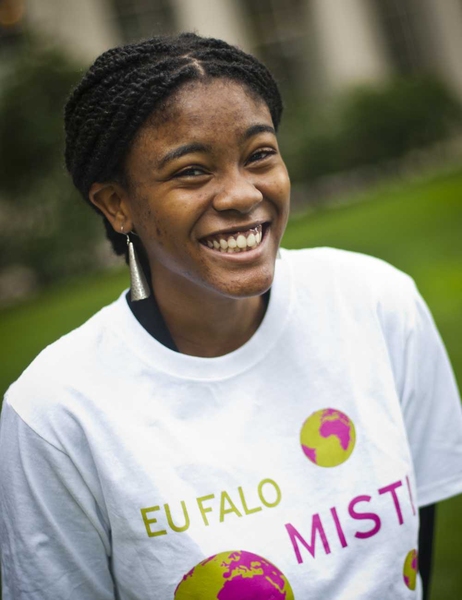
Caption:
Netia McCray, a sophomore in the Department of Physics, went to Brazil through MISTI.
Credits:
Photo: Dominick Reuter
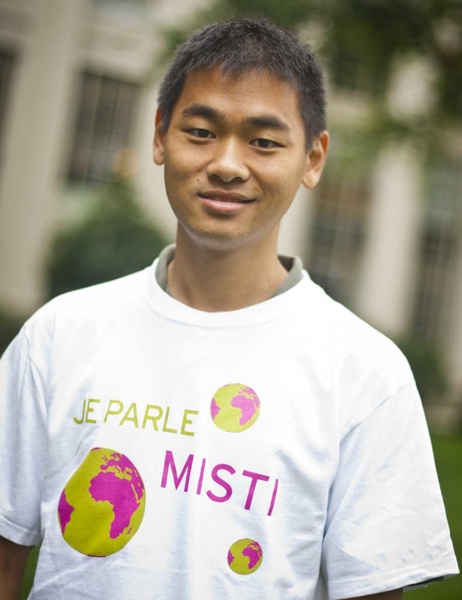
Caption:
Alan Xu, a junior in the Department of Mechanical Engineering, participated in the MISTI France program.
Credits:
Photo: Dominick Reuter
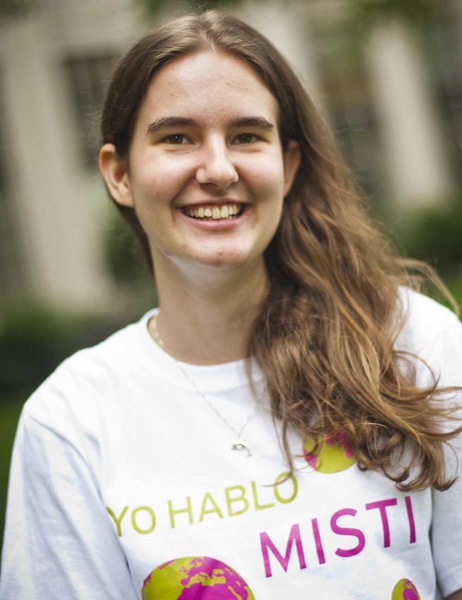
Caption:
Mexico was the destination for Shannon Taylor, a junior in the Department of Materials Science and Engineering.
Credits:
Photo: Dominick Reuter

Caption:
Ivana Wongwajarachot, a senior in the Department of Brain and Cognitive Sciences, visited Japan through MISTI.
Credits:
Photo: Dominick Reuter
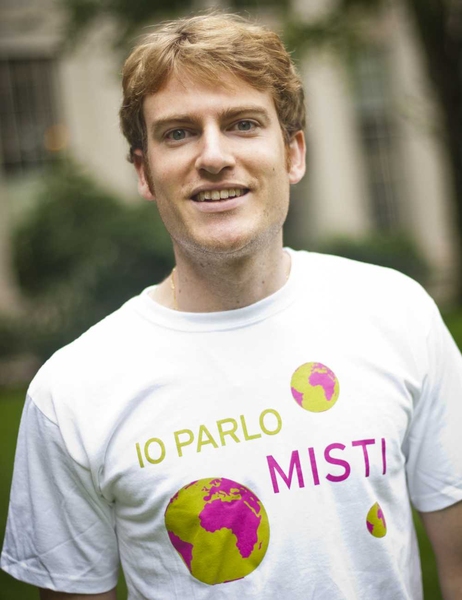
Caption:
Christopher Love, a graduate student in the Department of Mechanical Engineering, spent time in Italy twice through MISTI — finding some long-lost relatives along the way.
Credits:
Photo: Dominick Reuter

Caption:
A junior in the Department of Electrical Engineering and Computer Science, Leah Alpert was drawn to the MISTI Israel program
Credits:
Photo: Dominick Reuter

Caption:
Minh Tue, a sophomore in the Department of Electrical Engineering and Computer Science, spent time in India through MISTI.
Credits:
Photo: Dominick Reuter
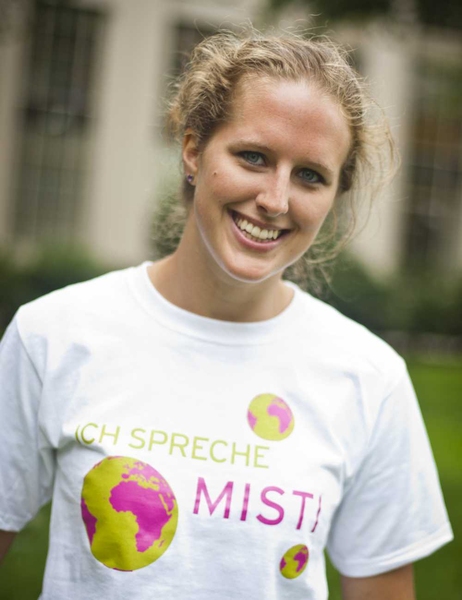
Caption:
The MISTI Germany program was the draw for Kirsten Hessler, a senior in the Department of Materials Science and Engineering.
Credits:
Photo: Dominick Reuter
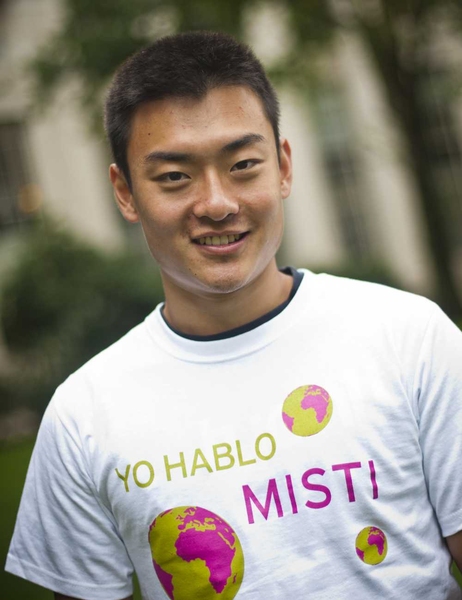
Caption:
Jeff Chen, a senior in the Department of Electrical Engineering and Computer Science, spent time in Spain.
Credits:
Photo: Dominick Reuter





